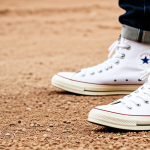Overview of Sustainable Fashion
Sustainable fashion refers to the creation and promotion of garments in ways that consider environmental, social, and ethical impacts. This movement emphasises using eco-friendly materials, sustainable production methods, and fair labour practices. The industry’s focus has gradually shifted towards understanding the full lifecycle of a product, reducing waste and carbon footprint, and supporting local economies through responsible practices.
Current trends reflect a growing consumer interest in sustainability, with more individuals prioritising products that align with their values. Shoppers are seeking transparency about how their clothes are made and prefer brands offering ethically produced and environmentally friendly options. This shift in consumer interest is driving brands to innovate and adopt more sustainable approaches.
This might interest you : Crafting an Everlasting Wardrobe: Long-Term Benefits and Impact
The impact of sustainable practices is significant, leading to a transformation of the fashion industry. Brands that embrace these practices are improving their ecological footprint and fostering a positive social change by promoting responsible consumption. Furthermore, as sustainable fashion becomes more mainstream, it has the potential to influence other industries by setting new standards for responsibility and ethics in production. Such practices not only benefit the environment but also create an inviting future for a more conscientious fashion industry.
Leading Innovators in Sustainable Fashion
In the world of sustainable fashion, a select group of designers is leading the charge towards more ethical and eco-friendly practices.
Also read : Emerging Fashion Trends: Paving the Path for the Industry’s Future
Designer Profiles
These top sustainable fashion designers are reshaping industry standards with their innovative approaches. They are known for employing sustainable techniques, breaking traditional molds, and addressing environmental and social issues through their work. For example, some designers use materials such as organic cotton and recycled fabrics, contributing to the reduction of environmental impact by choosing alternative options to traditional textiles.
Their Design Philosophies
The core values of these designers blend aesthetics with sustainability, ensuring that their creations are not only beautiful but also responsible. They prioritize materials and processes that minimize harm to the planet, displaying a commitment to sustainable practices without compromising on style. Techniques like zero-waste pattern-making highlight their dedication to change, setting a benchmark for the industry.
Notable Collections
Many of these designers have been recognised for their innovative collections, which emphasize the principles of sustainability. These collections often incorporate collaborative efforts with other brands, further promoting sustainability within the fashion community. Through such partnerships, sustainability becomes a shared value, encouraging wider industry adoption.
Impact and Future of Sustainable Fashion
The future of sustainable fashion is profoundly intertwined with technological advances that champion eco-conscious practices. Technological innovations, such as 3D printing and AI-driven supply chain management, are instrumental in reducing waste and enhancing efficiency. For instance, 3D printing can reduce fabric waste by producing garments on demand, while AI optimises inventory management to prevent overproduction.
The ongoing development of these technologies signals a transformative period ahead, promising a fashion industry that is both profitable and environmentally responsible. The implications for the future of sustainable fashion include a more streamlined production process, potentially lowering costs and making sustainable choices more accessible to a broader audience.
Predictions suggest that as awareness and climate urgency grow, both brands and consumers will increasingly prioritise sustainability. Many fashion brands are likely to invest in clean technologies and sustainable materials, resulting in eco-friendly collections becoming the norm. To fully realise this future, brands and consumers must continue advocating for ethical and sustainable practices that will not only shape the trajectory of the fashion industry but also inspire a shift across other sectors towards greener practices.




